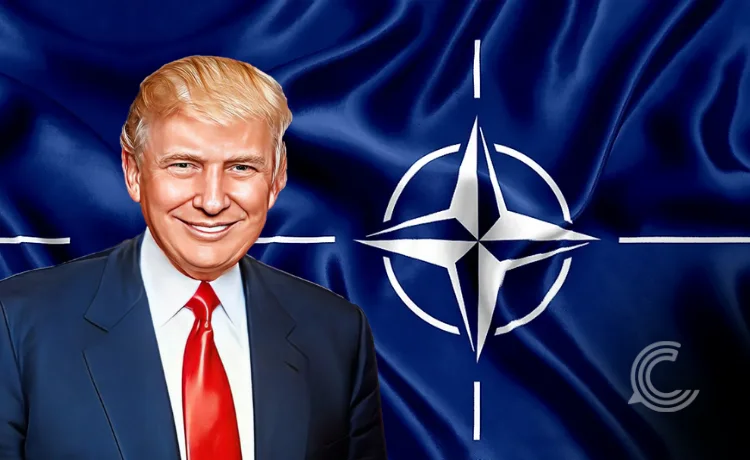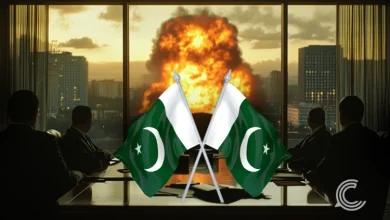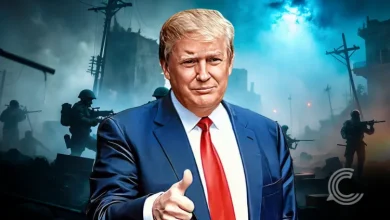Trump Threatens Spain with Tariffs Over NATO Defense Spending

Key Points:
- Spain is the only NATO member to reject the alliance’s new long-term defense spending target of 5% of GDP.
- U.S. President Donald Trump has openly mused about imposing trade tariffs on Spanish goods, deeming Madrid’s position “disrespectful” and a “free ride.”
- Madrid, which currently spends an estimated 1.28% of GDP, argues its commitment is demonstrated through robust troop deployments and a realistic 2.1% pledge.
Donald Trump has criticized Spain’s commitment to the North Atlantic Treaty Organization (NATO), threatening the nation with trade penalties for its refusal to adhere to a newly proposed NATO defense spending target.
Spain stands as the sole member of the 32-nation alliance to decline the commitment to spend 5% of its Gross Domestic Product (GDP) on defense by 2035, a benchmark largely pushed by the former President. The confrontation raises fresh questions about transatlantic security unity and the future financial burden-sharing within the alliance.
The direct threat of economic repercussions marks a significant turn in the long-running dispute over NATO defense spending. Speaking to reporters at the White House, Trump expressed extreme dissatisfaction with the country’s stance. “I’m very unhappy with Spain. They’re the only country that didn’t raise their number up to 5%… so I’m not happy with Spain,” he stated, as reported by Reuters.
He explicitly warned of using trade as a punitive measure. “I was thinking of giving them trade punishment through tariffs because of what they did, and I think I may do that,” he added. The comments reinforce the transactional foreign policy approach often espoused by Trump, linking military alliance contributions directly to economic relations.
A New, Controversial Defense Target
The current controversy stems from an agreement at a recent NATO summit where member states committed to a dramatically increased target for military investment. While the original 2014 agreement called for members to move towards spending 2% of GDP on defense by 2024, the new, higher 5% target, with 3.5% directed to ‘core’ military assets, was overwhelmingly adopted.
Spanish Prime Minister Pedro Sánchez, however, secured a last-minute exemption at the June meeting, asserting that a commitment of 2.1% of GDP was both “sufficient and realistic” for the Eurozone’s fourth-largest economy. He has cited the potential incompatibility of a massive military spending increase with Spain’s domestic welfare state priorities. Reported by various outlets, this has created a clear divide within the alliance.
Spain’s Stance: Contributions Beyond the Percentage
In response to the U.S. leader’s comments, Spanish officials have been quick to defend the nation’s loyalty and contribution to the alliance. Spanish Defense Minister Margarita Robles dismissed the criticism, stating, “We are not worried…President Trump must know that Spain is one of the committed and loyal [NATO] allies.”
Madrid insists its value to the transatlantic security pact extends beyond a mere GDP percentage. As one Spanish Foreign Minister noted, the country currently has thousands of soldiers deployed across key NATO missions in Latvia, Slovakia, Romania, Bulgaria, and Turkey.
Political and Economic Pressure
The defense spending debate has put Spanish internal politics under significant strain. The current leftist coalition government has historically faced resistance to increasing military budgets from its far-left political allies. While Spain has made strides toward the old 2% target, an estimated 1.28% of GDP on NATO defense spending remains low compared to its peers.
Trump’s threats serve as leverage in his long-term goal of forcing European allies to take greater financial responsibility for their defense. His language has included suggestions that Spain should be “thrown out of NATO” for being a “laggard.”
Broader Implications for Alliance Unity
The standoff presents a difficult challenge for NATO unity, particularly at a time of heightened geopolitical tension following Russia’s invasion of Ukraine. While the U.S. leader’s threats may compel some members to accelerate their spending plans, the public targeting of a single ally risks creating fissures within the bloc.



